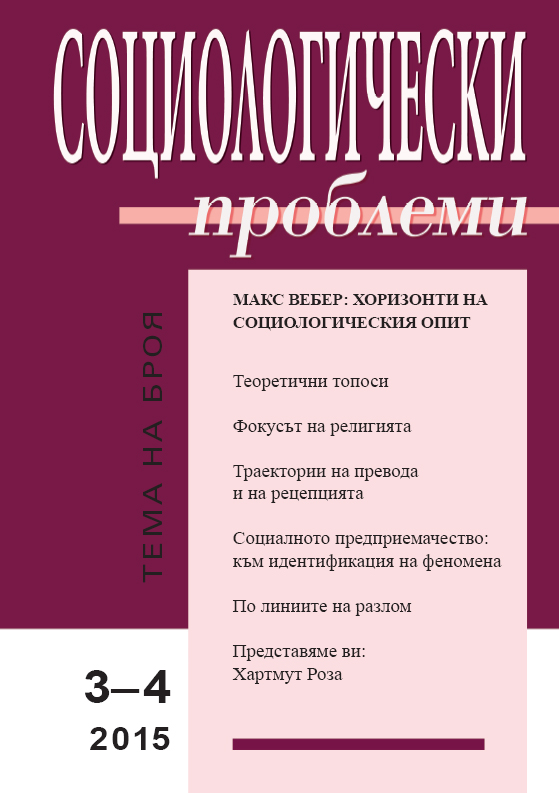Не „художествен образ“ или „такт“, а „обективиращо познание“
Neither “an Artistic Approach” nor “Tact”, but “Objectively Based Knowledge”
Author(s): Hubert TreiberSubject(s): Social Sciences, Sociology, Methodology and research technology, Social Theory
Published by: Институт по философия и социология при БАН
Keywords: „takt“ in the former meaning of wit, i.e. an artistic viewpoint which stimulates thinking by analogy; the reflective and determinative power of judgement (Kant); creating „objective“ knowledge by mean
Summary/Abstract: In his ‘Critical Studies regarding the logic of the sciences of Kultur’ (1906) Max Weber attacked the appeal to ‘tact’ or refined intuition that was common among historians, and demanded instead an ‘objectivising cognition’, by which he meant the use of precise concepts and also the application of ‘judgements of objective possibility’ (von Kries) in construing causal relationships. In the 19th century especially, representatives of the most diverse academic disciplines sought to describe their activity as ‘tact’ or ‘native wit [Witz]’, and in doing so they frequently made a distinctive “area association” (Danneberg) to the realm of art and aesthetics, or in the language of the day, to ‘artistic and graphic activity’. The multiple significances contained in this idea can be reduced to a single core by means of a brief conceptual history, which to a large extent follows the guidelines laid down by Gottfried Gabriel. Hermann Helmholtz (whose theory of perception is also briefly sketched, because of its potential epistemological implications) introduces the concept of ‘wit’ into one of his writings. This proves to be a key concept in laying bare the core significance of ‘tact’. Relying on Kant’s distinction between reflective and determinative judgement and the interpretation offered by Gabriel, it opens up the possibility that the ‘logical structure of knowledge’ posited by Weber largely follows the path indicated by Kant. Since ‘tact’ includes the power ‘to discover hitherto unsuspected similarities’ (Helmholtz), and hence the capacity for analogical thinking; and since Weber sees this talent as valid only in the context of the origins of knowledge, it is an obvious next step to test to what extent analogical thinking is employed in discussions regarding the foundations of knowledge, making use of the example of the kinetic gas theory. This example suggests itself because von Kries makes a close connection between his doctrine of “objective possibility” and the theory of ‘freedom of manoeuvre’ or ‘range’ [Spielraum]’, also developed by him, which is directed equally at ideal games of chance and at Ludwig Boltzmann’s kinetic gas theory — something Max Weber overlooked when he “plundered” the work of von Kries.
Journal: Социологически проблеми
- Issue Year: 47/2015
- Issue No: 3-4
- Page Range: 65-96
- Page Count: 34
- Language: Bulgarian
- Content File-PDF

